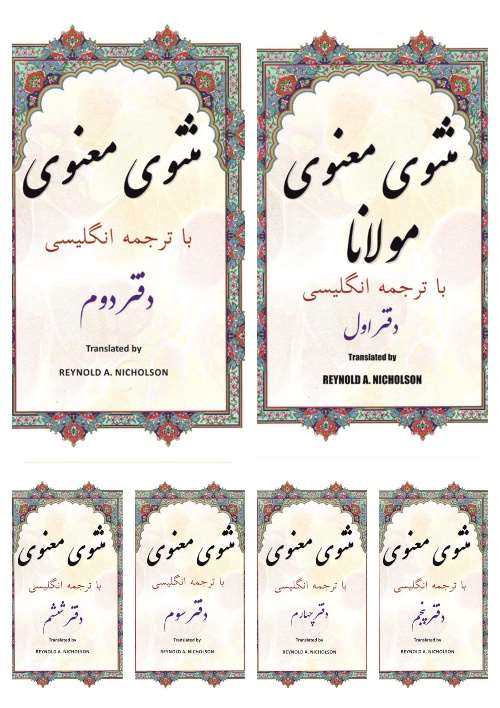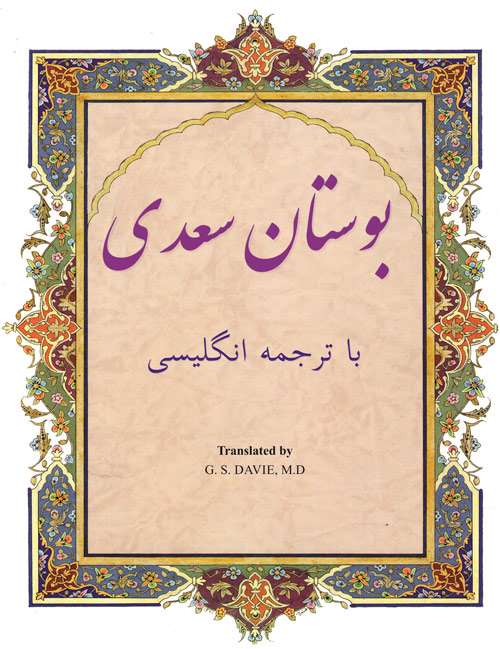
How that loving servant turned his face towards Bukhárá.رو نهادن آن بندهی عاشق سوی بخارا
رو نهاد آن عاشق خونابهریز دلطپان سوی بخارا گرم و تیز
With throbbing heart the lover, who shed tears mingled with blood, set out for Bukhárá in hot haste.
ریگ آمون پیش او همچون حریر آب جیحون پیش او چون آبگیر
The sands of Ámún seemed to him like silk, the river Oxus seemed to him like a pond.
آن بیابان پیش او چون گلستان میفتاد از خنده او چون گلستان
To him that wilderness was like a rose-garden: he was falling on his back from laughter, like the (full-blown) rose.
در سمرقندست قند اما لبش از بخارا یافت و آن شد مذهبش
The (material) candy is in Samarcand; but his lip got it from “Bukhárá,” and that (spiritual candy) became his creed.
ای بخارا عقلافزا بودهای لیکن ازمن عقل و دین بربودهای
“O Bukhárá, thou hast increased understanding (in others) but thou hast robbed me of understanding and religion.
بدر میجویم از آنم چون هلال صدر میجویم درین صف نعال
I am seeking the Full Moon: hence I am (thin) as the new moon. I am seeking the Sadr (Prince) in this ‘shoe-row’ (vestibule).”
چون سواد آن بخارا را بدید در سواد غم بیاضی شد پدید
When he described that “Bukhárá” looming black (in the distance), a whiteness (a mystic illumination) appeared in the blackness of his grief.
ساعتی افتاد بیهوش و دراز عقل او پرید در بستان راز
He fell (and lay) awhile senseless and outstretched: his reason flew into the garden of the mystery.
بر سر و رویش گلابی میزدند از گلاب عشق او غافل بدند
They were sprinkling rose-water on his head and face; they were unaware of the rose-water of his love.
او گلستانی نهانی دیده بود غارت عشقش ز خود ببریده بود
He had beheld a hidden rose-garden: the raiding foray of Love had cut him off from himself.
تو فسرده درخور این دم نهای با شکر مقرون نهای گرچه نیی
Thou, frozen (in spirit), art not worthy of this (inspiring) breath (of love): though thou art a reed (cane), thou art not associated with sugar.
رخت عقلت با توست و عاقلی کز جنودا لم تروها غافلی
The baggage of intellect is with thee, and thou art (still) possessed of thy wits, for thou art unaware of armies which ye did not see.
Special Offers
by: Reza about (category: Masnavi, Persian Poetry)
















What people say about "How that loving servant"?
No one replied yet.